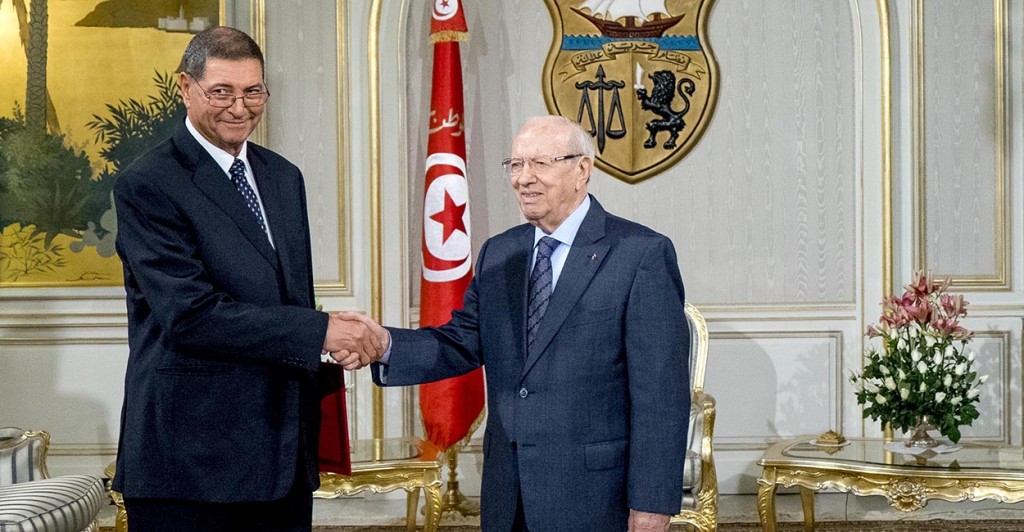‘We Need Inspirations All Over the World Right Now’: Why This Small North African Country Might Be It
Josh Siegel /
Four years since Tunisia became known as the birthplace of the Arab Spring, the tiny North African country is fast becoming something else: a democracy.
Mark Green, who has made a life out of fighting poverty and promoting democracy in Africa, traveled to Tunisia in October as its citizens voted in the country’s first full parliamentary election under its new constitution.
There, Green, the former U.S. ambassador to Tanzania, would witness a “credible, transparent and genuine” election that saw voters choose the secular Nidaa Tounes as the dominant party, over the Islamist party, Ennahda.
And upon talking with leaders from both parties, he learned the country’s leaders share a hunger for more.
“They told me: ‘Tunisia is not a model; but it’s an inspiration,’” said Green, who now heads a freedom-promoting organization called the International Republican Institute. “We need inspirations all over the world right now.”
Since Green’s visit, Tunisia has gone on to have presidential elections in November and a runoff between presidential candidates in December.
>>> Why Tunisia Might Be America’s First ‘Truly Democratic Partner’ in the Arab World
After taking the oath of office, new President Beji Caid Essebsi promised to be the “president of all Tunisians,” a feat the ousted former President Zine al-Abidine Ben Ali could never claim.
At around the same time, The Economist named Tunisia its “country of the year.”
“Tunisia’s success will inspire other countries,” says @AmbassdorGreen
But to become something more—a true inspiration for other Arab Spring countries such as Syria, Libya and Egypt that continue to struggle with conflict—Tunisia must work hard to engage young people, Green said. These are the same people whose disaffection with the former dictator government ignited the uprising.
According to Green and the International Republican Institute, which monitored the elections, only 46 percent of eligible youth voted in the parliamentary elections. That’s less than in 2011, before the Arab Spring.
“Young people did not vote,” Green said. “In the land of the Arab Spring, that’s a problem.”
It’s also a problem because young people are undoubtedly a factor in the country—and will be even more so in the future.
Though the youth unemployment rate in the country is at 31 percent, 57 percent of the Tunisian population is college-educated.

Tunisian President Beji Caid Essebsi shakes hands with prime minister designate Habib Essid during a meeting at the Carthage Palace in the capital Tunis, Tunisia. (Photo: Nicolas Fauque/Images de Tunisie/Newscom)
In another sign of progress, there are more Tunisian women than men studying in universities.
But a better informed society doesn’t necessarily lead to engagement.
“It is not that young people are not politically active,” Green said. “It may be that they don’t see a connection to an opportunity to affect real change.”
Green and fellow Tunisia experts Alexis Arieff, an analyst in African affairs at the Congressional Research Service, and Shantayanan Devarajan, the chief economist of Middle East and North Africa region at The World Bank, spoke at The Heritage Foundation Friday about the country’s transition to democracy.
To truly reach democracy, the experts say, Tunisia will not only have to better connect to its youth, but it will also need to diversify a state-driven economy that had been known for “crony capitalism” under Ben Ali.
It also must overcome security concerns. The Tunisian government reports that 2,400 of its people have traveled to Syria to fight with the Islamic State and other extremist groups since 2011.
Arieff perhaps best captured the challenge facing Tunisia.
“There’s a disconnect between international praise and internal anxiety,” she said.
While Tunisia’s ultimate legacy will be shaped in the years to come, Green is confident to predict the future.
“Tunisia’s success will inspire other countries,” he told The Daily Signal. “Other countries will look and say, ‘This is an example of a largely Muslim country which is now a largely Muslim democracy: growing, vibrant, tolerant, a voice of moderation.’ One that is a significant and responsible part of the community of democracies.”
